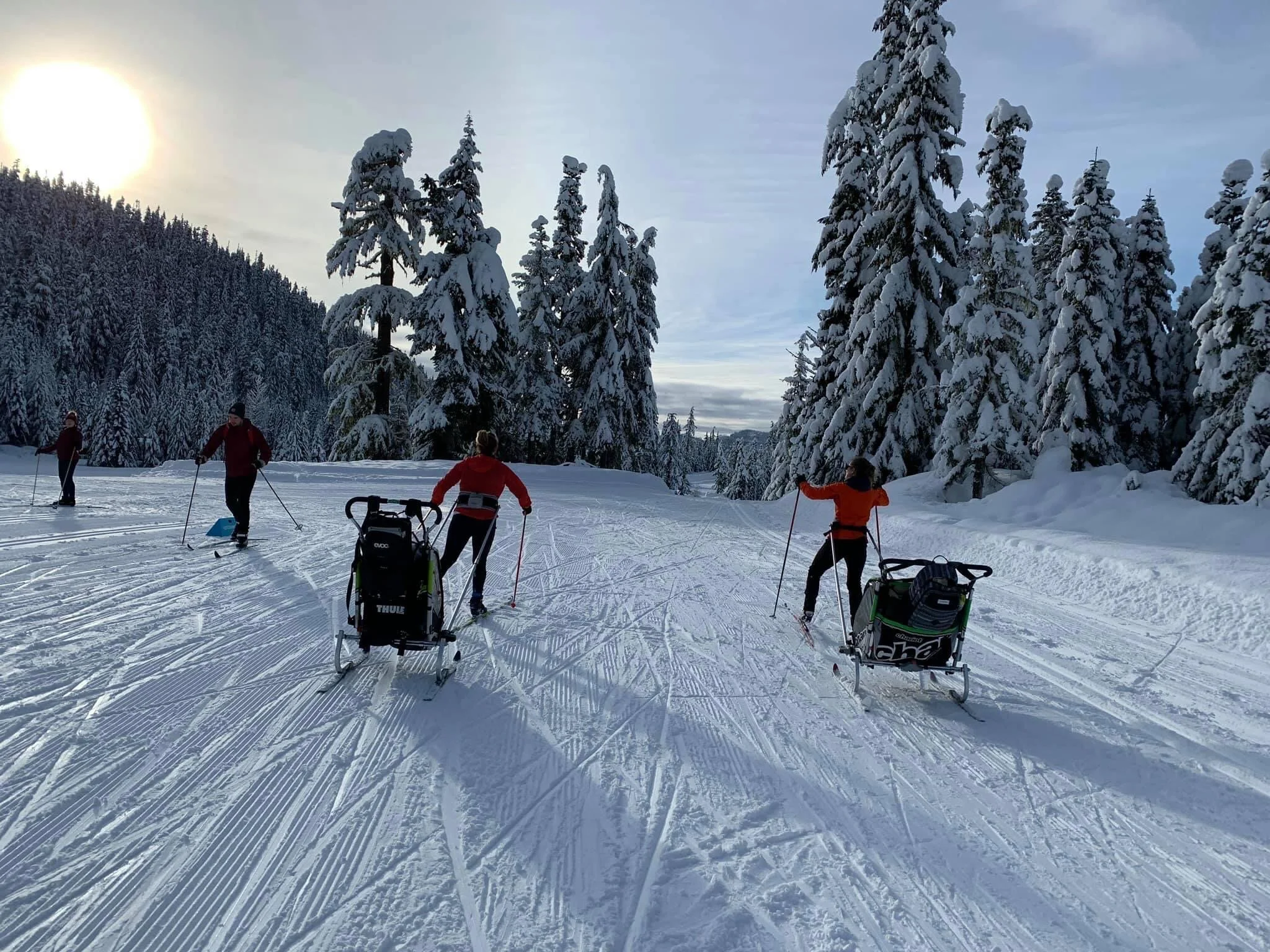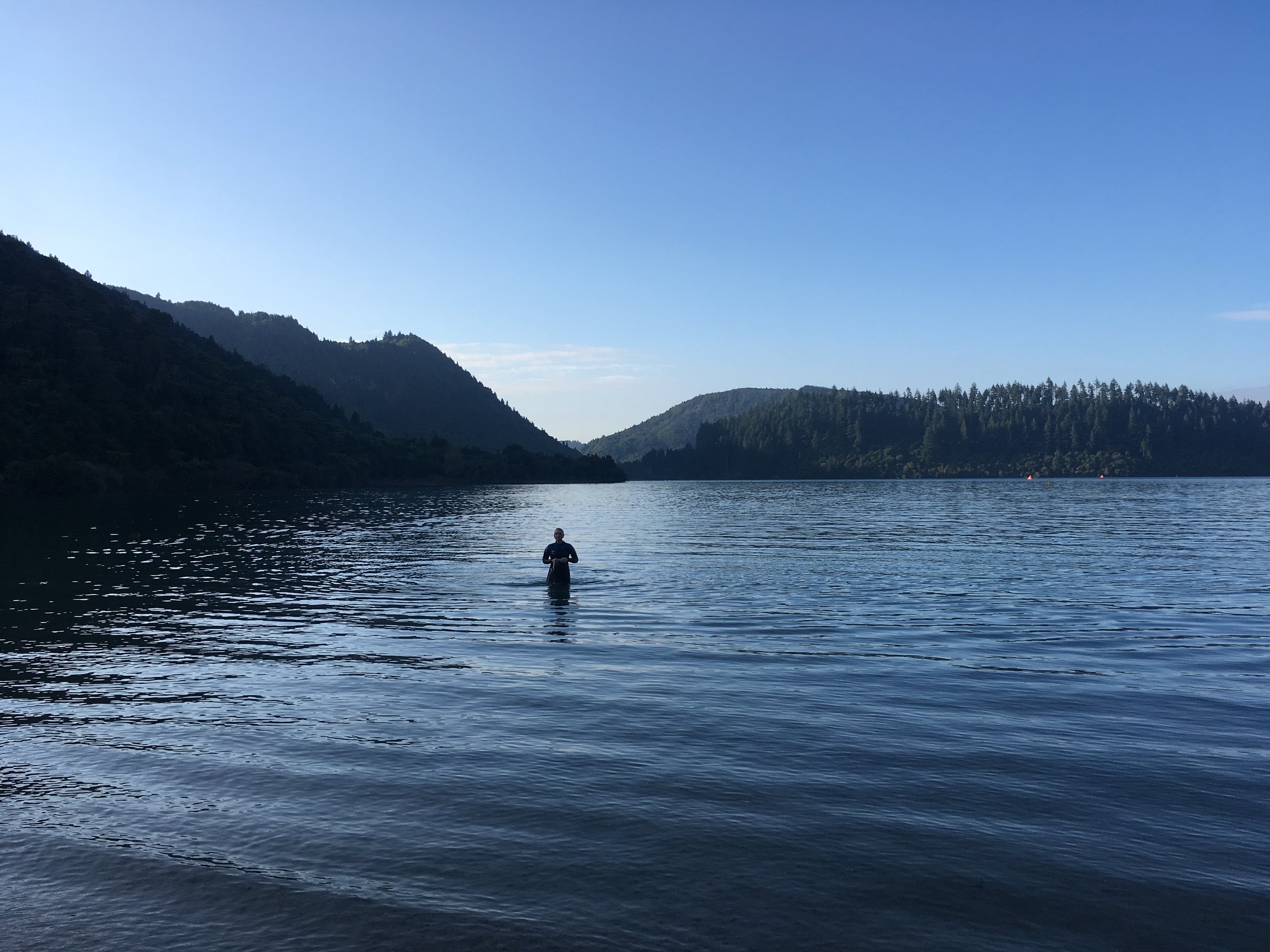Yesterday, I completed my first off-road half-marathon: The Salomon Valley to Peak. It was a trail race from Whistler Village up 1800+ meters to the Peak and back down to Roundhouse Lodge. Despite my active nerves about jumping up from the 10k distance that I raced as part of the run portion of my off-road triathlon in July, I was capable and ready. I owe my physical readiness to my coach Jen Segger, epic adventures with friends and training time with my solid race crew, Marissa, Liz and Emma.
But, I owe my mental readiness to four major things:
1. Positive Mind-Set
I'm a huge fan of an endurance sports podcast based in New Zealand called Fitter Radio. One of the hosts, Bevan Mackinnon did a segment on easing pre-race anxiety. One of his suggestions was to make sure that leading up to the race start, a racer should only use positive words associated with how they were feeling pre-event. For example, the week leading up to the Salomon Valley to Peak trail race I used the word "excited" instead of nervous when people asked me how I felt about the big task at hand. At first I didn't believe my own words, but pretty soon - I actually was excited. I couldn't wait to get up on race day and have the whole morning (and early afternoon) ahead of me to test my limits on Whistler's trails.
2. Get a Course Preview
Knowing what's in store for me on race day is so important for my mental preparation. I'd never race an enduro on my mountain bike without pre-riding the course, so unsurprisingly with the technical nature of running on trails, I like to be able to plan ahead. Ideally, braking a big course like this down into sections and timing a gentle dry run gives me some great goals to work towards. Previewing the course lets me know when to go full gas or reel it back in, according to what's ahead.
3. Develop Those Skills
Local coaching legend, Munny Munroe leads a series of pre-race clinics that introduce racers to the skill that's required for trail running. For instance, there is an art to downhill running (difficult to master - hilarious to watch). The skill level required reminds me of mountain biking and having that in your mental toolkit can often make or break your race. This isn't like road running. It's almost an entirely different sport. If you can't find a skills clinic then join a local trail running group.
4. Going the Distance
Prior to committing to this trail race I had never gone the proposed total distance, flat uphill or otherwise. to ease my anxiety, my dear friend and biking teammate on Team Arbutus went for a low-key trail run with me that included part of the course but didn't gain much elevation. In fact, we lost a ton of elevation. By opting to cut out at the far point of High Note trail and run down Singing Pass we still did 21+ kilometers without blowing out my legs and that gave me the confidence that my body could do it. I was also able to test out my hydration pack and fueling strategy. Win-Win!
If trail running and racing is your jam, I can't recommend trying a bigger distance or vertical challenge highly enough. Keep in mind that getting there isn't always about the physical training. Making the leap to racing a further distance off-road requires racers to have a strong mental game layered in on top of a training plan. Until next time, happy trails!






























Endurance Training Experiments In Rotorua, New Zealand